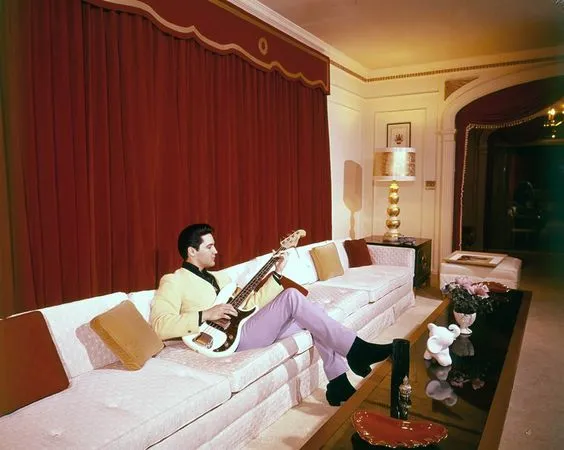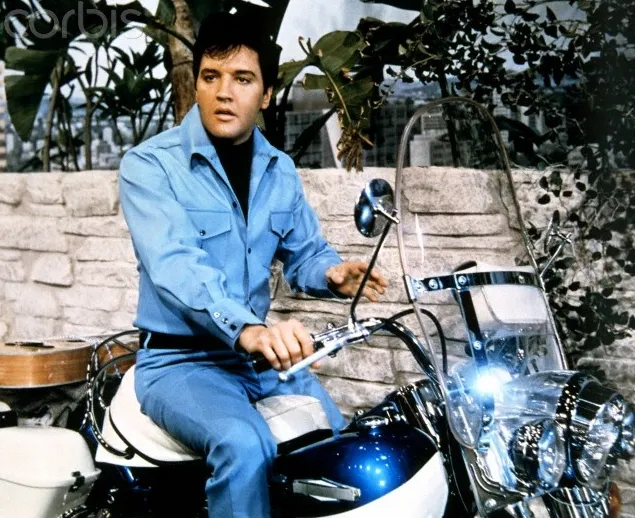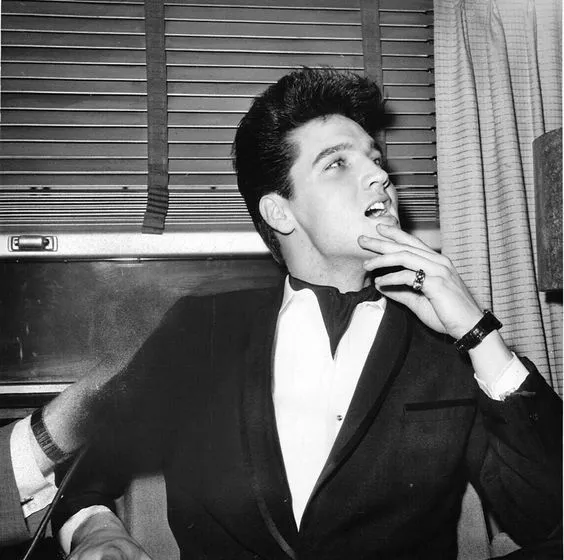About the song
(Watch the video below)
In the annals of music history, few songs carry the emotional weight and cultural significance of "Heartbreak Hotel" by Elvis Presley. Released in 1956 as a single and later featured on his debut album, "Elvis Presley," this iconic track marked a pivotal moment in the evolution of popular music, ushering in the era of rock and roll while simultaneously establishing Presley as a cultural phenomenon. With its haunting melody, evocative lyrics, and raw emotional power, "Heartbreak Hotel" remains a timeless anthem of despair and longing, capturing the universal experience of heartache with unparalleled intensity.
At its core, "Heartbreak Hotel" is a song about the pain of lost love and the loneliness that accompanies it. The lyrics, penned by Mae Boren Axton and Tommy Durden, tell the story of a broken-hearted protagonist who finds solace in the titular establishment, a metaphorical refuge for those who have been cast aside by love. As Presley's soulful voice croons the opening lines—"Well, since my baby left me / I found a new place to dwell"—listeners are immediately drawn into the protagonist's world of sorrow and despair, their own hearts echoing with the ache of unrequited love.

Musically, "Heartbreak Hotel" is a masterclass in atmosphere and mood, with Presley's emotive vocals set against a backdrop of haunting instrumentation. The song's brooding rhythm, anchored by Bill Black's thumping bass line and D.J. Fontana's sparse drumming, creates a sense of foreboding that perfectly complements the melancholy tone of the lyrics. Scotty Moore's bluesy guitar licks add to the song's sense of longing, while Floyd Cramer's mournful piano fills provide a haunting counterpoint to Presley's impassioned delivery. Together, these elements combine to create a sonic landscape that is as haunting as it is unforgettable.
One of the most remarkable aspects of "Heartbreak Hotel" is its cultural impact and enduring legacy. Released at a time when popular music was dominated by saccharine love songs and upbeat dance numbers, Presley's raw and emotionally charged performance was a revelation, challenging conventional notions of masculinity and vulnerability. The song struck a chord with audiences of all ages, resonating with anyone who had ever experienced the pain of a broken heart. Its universal themes of love and loss transcended boundaries of race, class, and gender, making it an instant classic and solidifying Presley's status as the King of Rock and Roll.

Moreover, "Heartbreak Hotel" also served as a landmark moment in the integration of popular music, bridging the gap between black and white audiences and paving the way for future generations of artists. Presley's unique blend of blues, gospel, and country influences resonated with listeners from all walks of life, helping to break down barriers and forge connections in an increasingly divided society. The song's impact on the cultural landscape cannot be overstated, as it laid the groundwork for the rock and roll revolution of the 1960s and beyond.
In addition to its cultural significance, "Heartbreak Hotel" also holds a special place in the hearts of Presley's legion of fans, who continue to cherish the song as one of his greatest achievements. From its haunting melody to its poignant lyrics, "Heartbreak Hotel" remains a powerful reminder of Presley's enduring talent and legacy, his voice serving as a beacon of hope and solace in a world filled with heartache and longing. As we continue to grapple with the complexities of love and loss, "Heartbreak Hotel" stands as a testament to the enduring power of music to heal, inspire, and unite us in our shared humanity.



